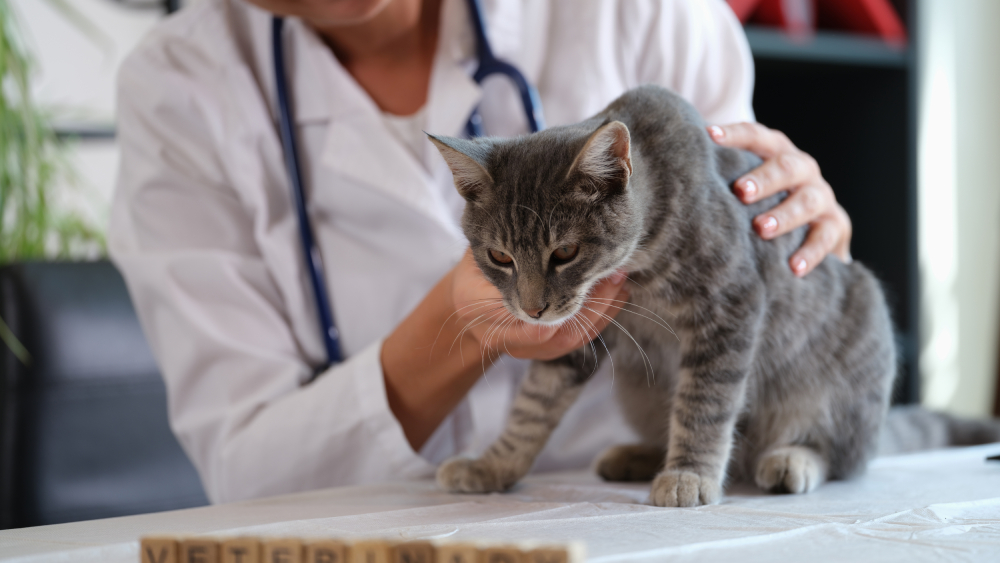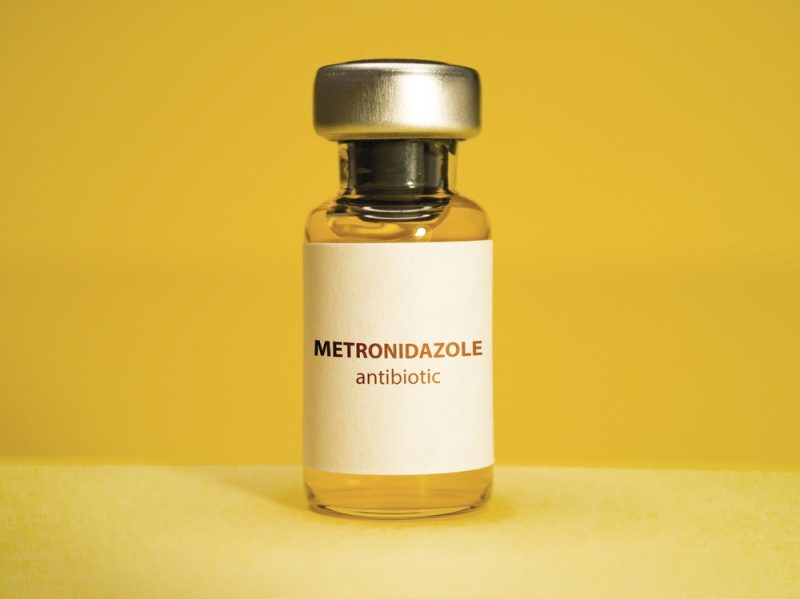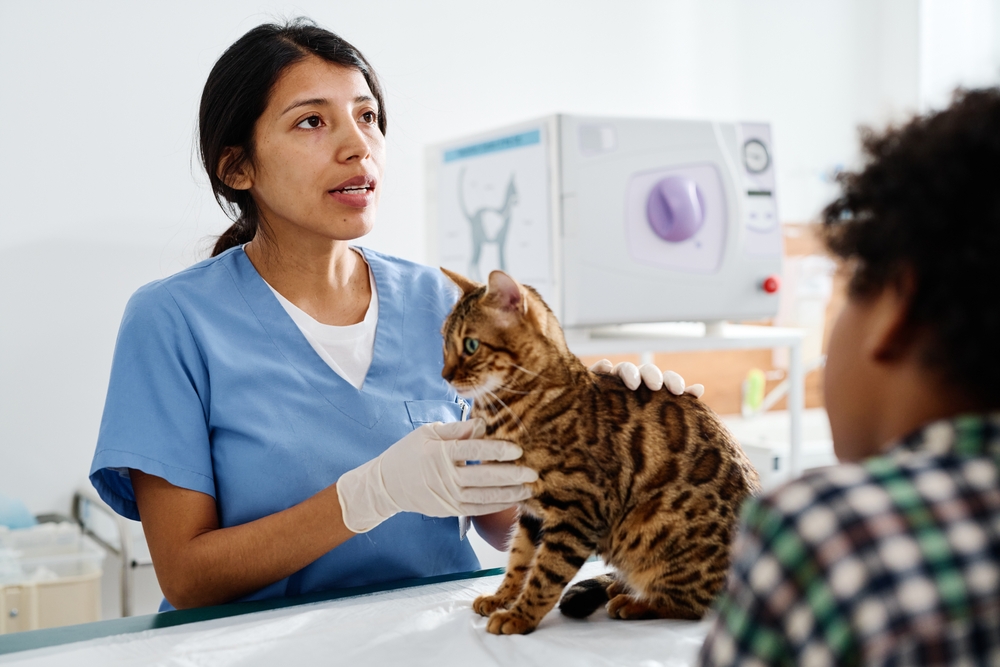Click to Skip Ahead
Metronidazole is a common medication found on the shelves of veterinary hospitals and pharmacies. This antibiotic is used to treat several different disorders and has been very valuable to veterinary patients, although its use in dogs and cats is considered extra-label in the United States. So, continue reading below to learn about the dosages, uses, and potential side effects of this medication for cats specifically.
What Is Metronidazole?
Metronidazole, or Flagyl, is an antimicrobial and antiprotozoal drug often used to treat conditions that cause diarrhea. This medication is advantageous against common protozoan parasites including Giardia and anaerobic bacteria. In addition to infectious causes, it has been helpful in controlling inflammatory bowel disease and hepatic encephalopathy. Metronidazole has anti-inflammatory effects.
Dosing recommendations vary depending on the illness being treated. Care should be taken to administer the medication as prescribed by the provider.
It is also important to follow storage information found on the medication packaging, as storage recommendations may differ between compounded products.

How Is Metronidazole Given?
Metronidazole can be given orally as either a liquid, capsule, or tablet. It is also available in an injection form for use within a hospital setting. Metronidazole is often bitter and can be difficult to disguise the taste, making it difficult to administer, especially to cats. Compounded metronidazole benzoate is more readily accepted by cats, as it is less bitter.
Generally, Metronidazole is given twice daily. Some conditions requiring long-term treatment with Metronidazole may do well with once-daily dosing. In the event of an accidental overdose, contact your veterinarian.
- Stomach upset
- Reduced appetite
- Neurologic signs
- Hypersalivation
- Hepatotoxicity
What Happens if You Miss a Dose?
If a dose of metronidazole is missed, you can give it when it is remembered, but then you must wait the recommended interval before the next dose is given. Do not double up on doses.
Risk of Metronidazole Toxicity
Some animals may experience neurotoxicity from metronidazole. This is most likely to occur in animals on high doses of the drug, following an accidental overdose, or those who receive Metronidazole for prolonged periods of time. Signs of neurotoxicity include nystagmus, seizures, and a head tilt, among other signs. If this is noted in your pet while on metronidazole, discontinue and reach out to your prescribing veterinarian.

Precautions
This medication should be used with caution in animals with liver disease. Animals with liver concerns should receive a reduced dose. Severe renal impairment patients may require a lower dose as well. Metronidazole administration should be avoided in pregnant animals.
Drug Interactions
Care should be taken if administering Metronidazole concurrently with the following drugs, and your veterinarian should be consulted:
- Barbiturates (Phenobarbital)
- Phenytoin
- Warfarin
- Cimetidine
- Terfenadine
- Vitamin K Antagonist
- Lithium
- Calcineurin inhibitors
- Cyclosporine
Frequently Asked Questions
Is It Safe to Use Metronidazole in a Pregnant Cat?
No, it is not recommended to use Metronidazole in pregnant animals, as it can cause birth defects.
Should This Medication Be Given With Food?
This medication should be taken with food to minimize the risk of gastrointestinal upset.
If Neurotoxicity Occurs, Are the Signs Permanent?
Signs of neurotoxicity can resolve once the medication has been discontinued. This can take several days to weeks. Diazepam can help improve clinical signs quicker. Rarely is neurotoxicity from Metronidazole fatal.
In Summary
Metronidazole is a commonly utilized antibiotic/antiparasitic agent. The risk of neurotoxicity exists, but this is typically the result of prolonged dosing or the use of high doses. It is important to discuss any medications your pet is on with your prescribing veterinarian before starting Metronidazole or any other medication. Close observation of your pet is recommended while on Metronidazole to ensure improvements are being noted to clinical signs and to monitor for adverse effects.
See Also:
- What Is Apoquel for Cats Used For? Our Vet Explains
- Pyrantel Pamoate for Cats: Dosage, Uses & Side Effects (Vet Answer)
Featured Image Credit: Sonis Photography, Shutterstock














